In January 2023, AIR organized and hosted a unique TechSprint to explore how blockchain and cryptocurrency technology could support the removal of carbon dioxide from the atmosphere at massive scale. To meet the challenges posed by climate change, the world must substantially reduce greenhouse gas emissions, generate more energy from renewable sources, and capture and store carbon dioxide at gigaton scale. The TechSprint focused on the last of these imperatives.
At AIR, we love working on difficult challenges, charting new pathways through collaboration, experimentation and creativity. There are few more complex or significant challenges in today’s world than that of climate change. The global climate crisis is ultimately an issue that affects or will affect us all. It is also an issue of fairness, where the most vulnerable will increasingly be disproportionately impacted.
A key obstacle to progress on climate change is that any solution will almost certainly span multiple realms of knowledge and endeavor — the hard sciences, economics, law, politics, civic advocacy, culture and behavioral change, and much more. AIR seeks to create environments and ecosystems that can thoughtfully explore and attempt to solve aspects of these massive challenges. We thrive on connecting such problems with frontier technologies and great minds.
Like our other TechSprints, the January event brought together a diverse group of individuals and entities, many of whom were unknown or previously unconnected to each other, and whose collective knowledge spanned digital technology, the physical sciences and engineering. Participants included researchers and specialists in carbon dioxide removal, cryptography, tokenomics, climate science, sensor technology, environmental advocacy, economics and venture building.
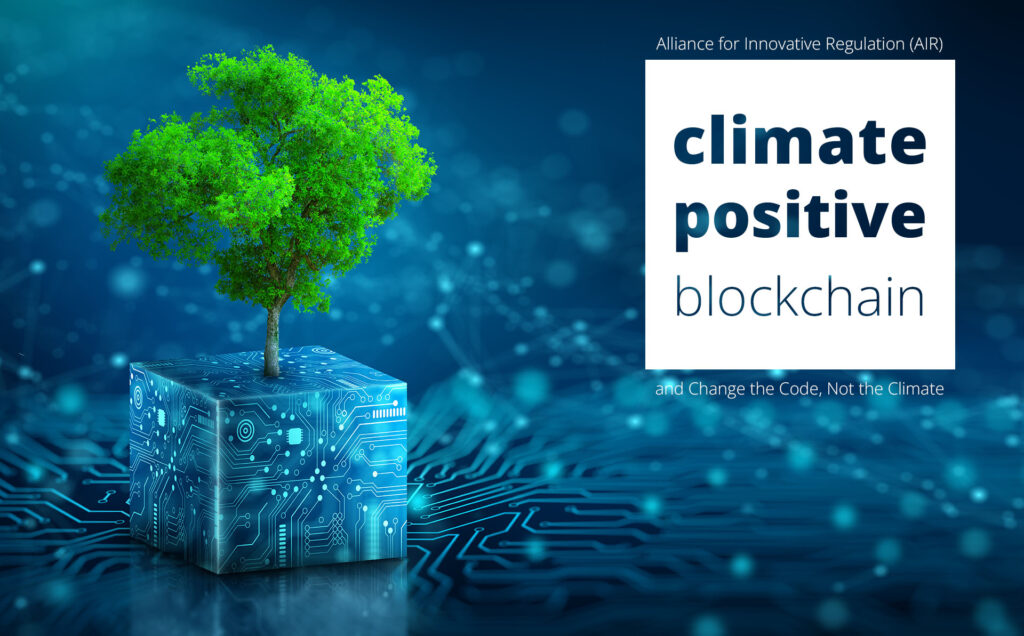
This group joined forces in a series of preliminary workshops followed by a four-day TechSprint hosted in the San Francisco Bay Area by Alix Partners. Using design thinking techniques facilitated by Launch Labs, participants learned from and taught one another, collaborating to develop ideas and solutions.
The teams created a shared vision and common languages that motivated them to drive towards novel, creative solutions. The AIR team and our partners supported the teams throughout the sprint, through challenging moments and exciting breakthroughs. By the end of the event, numerous ideas, concepts and possible solutions had been considered, debated and iterated. Through working together and targeting a common and motivating problem, trusted relationships and new connections were formed.
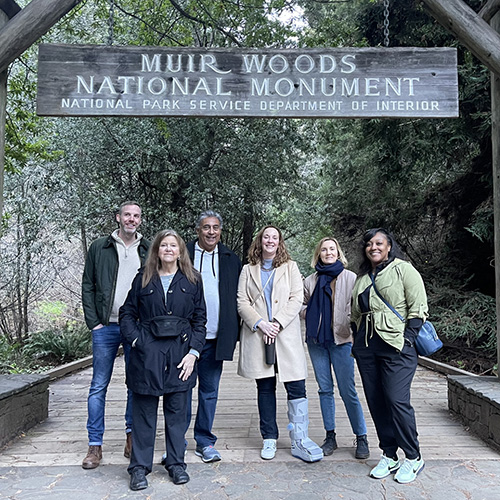
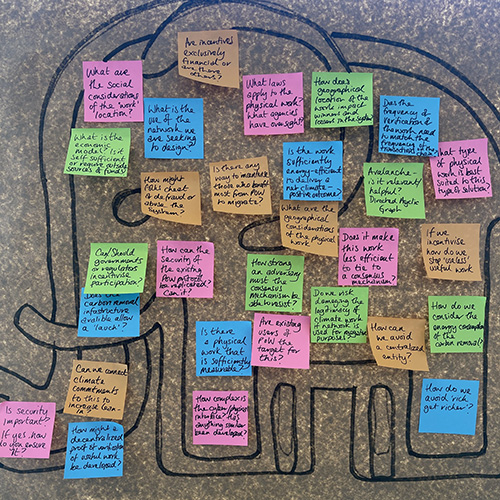
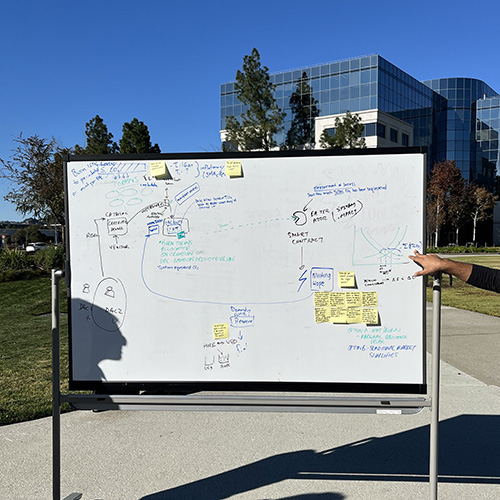
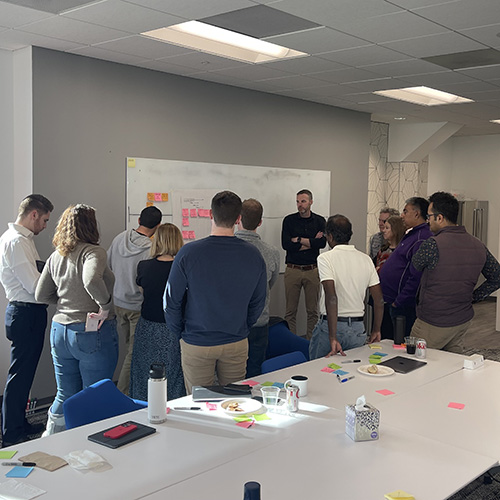
One of the concepts brought to the Sprint and examined by this diverse team has continued to be developed and has been captured in a paper that’s been released to an archive of scientific research. The paper looks at a new crypto token that incentivizes the removal of carbon dioxide from the atmosphere at gigaton scale using direct air carbon capture and storage (DACCS). The paper proposes a solution that verifies and records the quantity of carbon dioxide captured and stored on an immutable blockchain in real time, rewards DACCS facilities with a specified quantity of crypto-tokens, and offers highly effective security against malicious attacks and fraud. If the token is successfully adopted and used more broadly, the paper also discusses how the new token can become a medium of exchange. The paper is authored by Jonathan Bachman, Shantanu Rane, and Krishnan Thyagarajan, who are researchers at the Palo Alto Research Center (PARC), along with Sujit “Bob” Chakravorti, who is at AIR. The authors posted an early version to a scientific archive in the hopes of attracting helpful feedback, spurring dialogue among stakeholders and optimizing this collaborative effort.

INITIATIVE • Crypto Climate Accord Targets Net-Zero Emissions
Cryptocurrency firms signing on to the initiative — launched by Energy Web, the Rocky Mountain Institute (RMI) and AIR — have committed to reduce their own emissions and help develop standards for 100% renewably-powered blockchains.

EVENT • Make Money Green: How a Changing Climate Affects Financial Regulation
Global efforts to fight climate change mean new challenges and opportunities for companies and regulators, shining a light on everything from the financial stability risk of extreme weather to green financing initiatives to crypto miners’ energy use.

PODCAST • Energy Web CEO on Fixing Crypto’s Climate Problem
Jesse Morris, who leads nonprofit Energy Web in developing open-source ways to decarbonize the energy grid, speaks with Jo Ann about the private-sector effort to encourage cryptocurrency firms to reach for net-zero emissions.
Stay informed by joining our mailing list